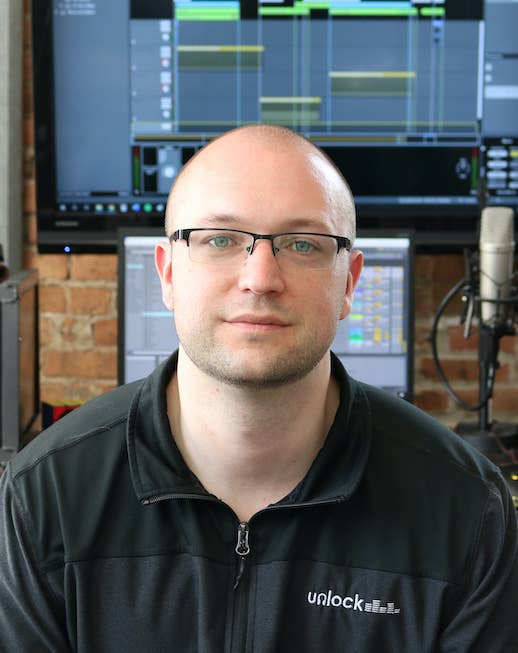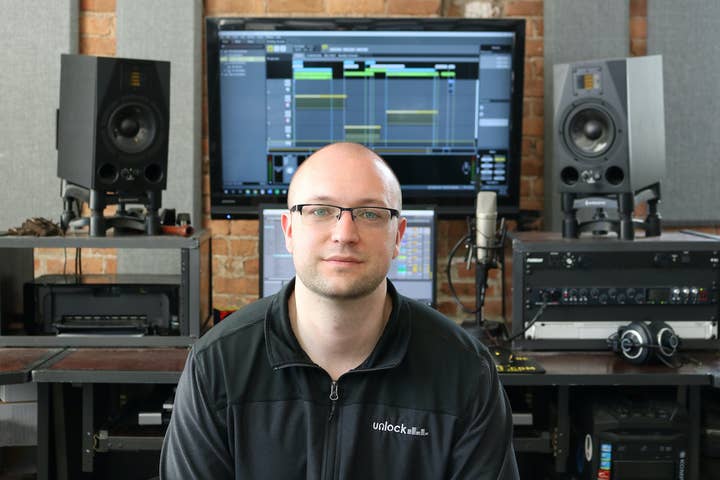How to get the most out of your voice actors
Unlock Audio's Elliot Callighan and Bonnie Bogovich give advice for getting the best performance possible from your recording talent
So, you've decided to breathe even more life into your game by giving characters a voice. Hooray! This is an important decision that can result in an incredibly rewarding experience, delivering on your clearest creative vision and creating unforgettable, new personalities your players can't help but love.
That said, this feat is not simply a matter of scouring reels for the perfect cast. The real vocal triumph lives and dies by what happens before, during, and after your talent steps into the booth. Whether you're working with upstart talent or seasoned industry vets, here are some essential recommendations for getting the best performance possible from your roster of recording talent.
1. Lock your script
Few experiences can derail a recording session faster than an actor seeing words shuffle around on-screen while trying to lay down lines
The importance of script lock cannot be overstated. While it may be tempting to edit scripts on the fly, few experiences can derail a recording session faster than an actor seeing words shuffle around on-screen while trying to lay down lines.
It's understandable that stories evolve as games develop, but it's also important to keep the assignment consistent for your actors' sake. Many would prefer an uneditable script format (e.g., PDF) or will even print out their scripts beforehand. If the need for new lines arises, save your script revision for a new recording session down the road.
2. Designate a "game world" ambassador
One of the most helpful influences we've found in recording sessions is the direct involvement of a creative representative from the game studio. We often request a writer or creative director, someone with deep knowledge about the world-building, characters, relationships, vocabulary and lore, to sit in on all planning and recording calls. These calls are a crucial opportunity to discuss objectives, immerse our talent in the overall vision, and boost their comfort with the material even before we hit record.
We emphasize the importance of video meetings and video chat in these engagements, as it's far easier to overcome obstacles like tone or translation barriers which can get lost in emails and chats. While this adds a layer to coordinating schedules, especially when working across time zones and international borders, our results have proven the challenge is worth its weight.
Having a creative representative sit in on the recording sessions also provides the opportunity to bounce feedback and answer questions in real-time. As the developer liaison, it's also a chance to identify top takes in real-time and flag lines to revisit as actors get deeper into character as sessions go on.
3. Be as descriptive and visual as possible

While a creative ambassador is helpful for fielding questions as they happen, there's plenty that developers can do to frontload the actor with information about their needs. This can include not only dialogue but ample context about the world, characters, actions, and relationships at key points where it may inform the performance. Even vague descriptions about the type of energy you hope to convey can steer an actor's choices.
Take vocal exertions for various combat attack styles for example. Maybe a character, let's say an Octo-man, has multiple attack types that your talent is tasked with voicing. The first might involve slamming their squiggly tentacles forward, while in the second they use their tentacles to toss a bomb. With these descriptions available, an actor can tackle the nuance of what suits the character best in both unique action sequences.
When made available, visuals can also be an invaluable tool during recording. Animation or even storyboards of what will show on screen can help an actor tailor their delivery. If in-game video or animation is not yet available, references of similar examples from YouTube can be just as beneficial. How might an actor voice a character that rushes headlong differently than another character that swiftly teleports? Seeing these key scenes play out can elicit vocal takes that are both well-suited and unique.
4. Respect your actors' limits
Limits in voice recording can be both maximums and minimums. For instance, it's common practice for voice actors to charge a per session minimum (often two hours) any time they step into the recording booth. Reason being, whether your actor is recording in the studio or at home there is far more prep work involved than simply flipping an "On" switch.
To maintain the high-octane performance you need, make sure to keep sessions short and enforce frequent, mandatory breaks
Even if you're only booked to record a handful of lines, expect to pay a minimum session charge. The key exception here would be reflected in a pickup clause which allows for a developer to request the limited rerecording of a selection of lines for tonality, inflection, or other specific need (usually up to 30 minutes of recording) sometime after the initial session.
Another limit to be aware of involves high exertion or high energy recording. If you've got an action-packed script where most lines end in an exclamation mark, this might fall under an actor's criteria for a more physically demanding performance which may result in both a higher fee and capping a session at two hours max.
The same applies to nonverbal recordings, like shouts, grunts, cheers, etc. Your in-game character may have limitless stamina, but your voice actors do not. To maintain the high-octane performance you need, make sure to keep sessions short and enforce frequent, mandatory breaks. The longer your session, the longer the breaks should become.
5. Trust your talent's instincts

Most importantly, recording sessions are best when there's a sense of teamwork and camaraderie. The level of personality our talent can instill into a character only grows with collaboration and freeform information share. You might be surprised how much actors gain a feel for their subject and revel in their material. They might even recall approved takes from an earlier session that they suggest revisiting to capture the full potential of the character they've come to love and embody. Our recommendation: take them up on their request! Love it or hate the new take, you've only got more to gain.
In fact, if your timeline allows, go even further and give your actors the chance to flex some creative license and show off their improv skills. Let them test out alternative voices they feel best suit their character, and encourage them to play with the role or even tug at potential new plot threads between their character counterparts. You could even strike gold with surprising new beats of dialogue, unexpected plot points, and more. Voice actors are good for so much more than parroting a script!
Bonnie Bogovich is a vocal artist and director in the video game, educational, interactive, and audio drama scenes. She performs in operatic, choral, and musical ensembles, and has been featured on video game tribute albums and soundtracks. Elliot Callighan is a composer and sound designer, and the owner of Unlock Audio.
